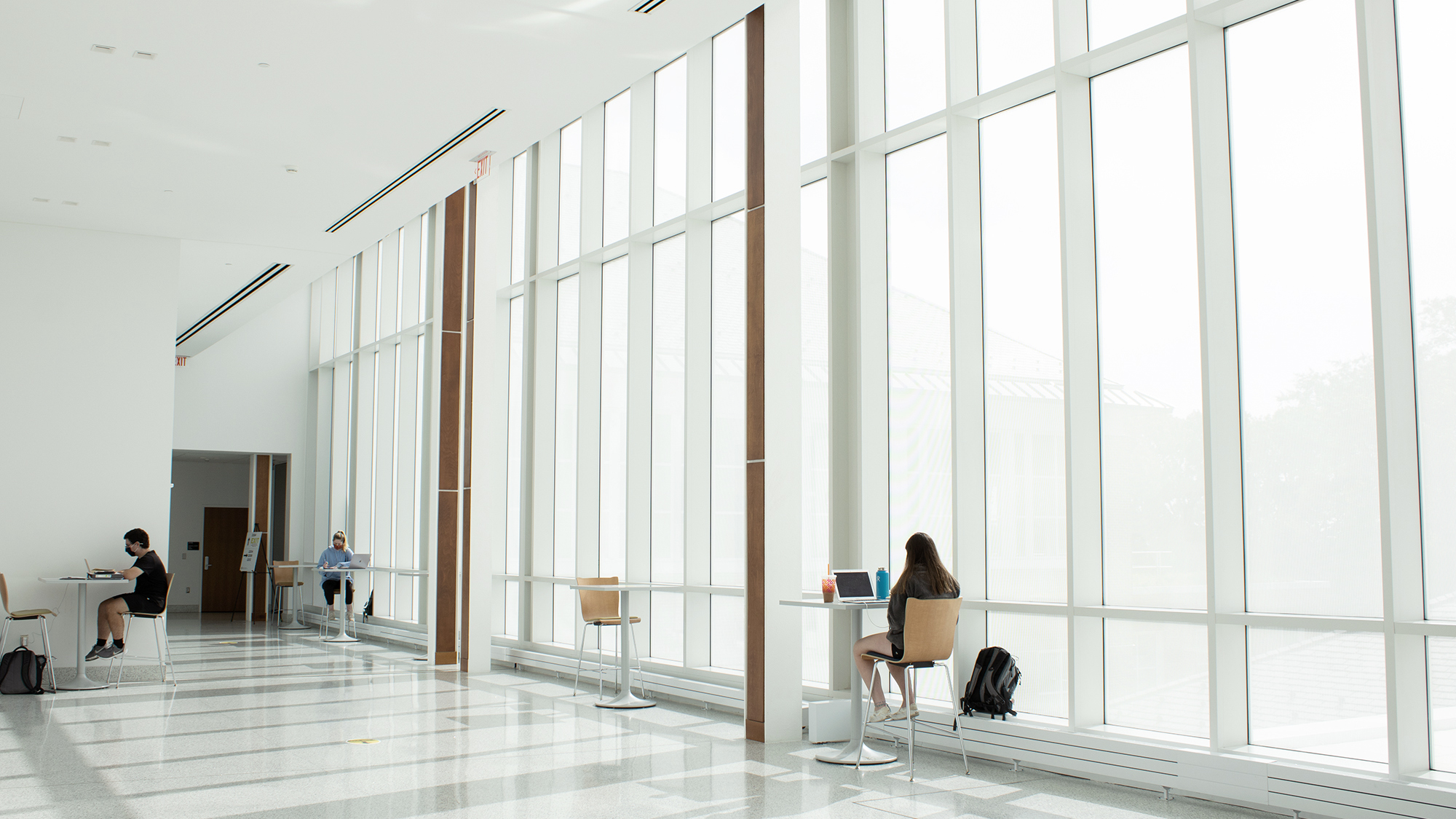As the coronavirus pandemic continues to alter instruction and campus life at the University of Maryland, students once again have to weigh their options and decide how they will approach the spring semester.
COVID-19 cases are rising across the U.S. and a majority of spring courses are currently expected to be held online in the spring. Last month, Provost Mary Ann Rankin wrote in a campuswide email that the spring semester would still be conducted in a hybrid fashion, with up to 25 percent of instruction delivered in person. This marks a small change from this semester, with about 15 percent of undergraduate instruction held at least partially in person.
Over the summer, government and politics major Caleb Nolan decided that as an out-of-state student, staying home for the fall semester was his best option. He had planned to live on the campus, but the university required residents to sign an addendum that stipulated the university was not obligated to provide refunds if it sent students home early.
The cost of out-of-state tuition and the fact that many of his friends were also staying home contributed to his decision.
In Nolan’s time off from school, he’s been working at Smoothie King and volunteering with a program that coaches kids to live healthier lifestyles. But he’s ready to come back to school and begin his sophomore year this spring.
Nolan says he feels less uncertain about housing and knows that he won’t be alone, because the friends he’s living with also decided to go back in the spring.
“The whole semester I’ve kind of felt like I’ve been falling behind,” he said. “But it’s OK. I know that once I get back, it’ll be better that I took it off than not.”
[Amid the pandemic’s uncertainty, UMD students are already looking for next year’s housing]
Meanwhile, at the beginning of this semester, sophomore communication major Ella Szabo knew she’d be returning: she had signed a lease for an on-campus apartment, and she couldn’t get out of it. Still, she had concerns about managing online classes again and about getting sent home early.
The quality of her education has gone down with online classes, she said, and students have lost “a sense of community” that came with in-person classes. But as this semester has progressed, she’s become more accustomed to the new life on campus. And she feels comfortable staying in College Park next semester.
“A lot of those concerns have gone away,” she said.
But aerospace engineering major Jeremy Page, a rising junior, will spend next semester at his home in Connecticut, just as he did this semester.
During the spring semester, when the university abruptly moved all classes to an online format, Page was underwhelmed.
“I really like having personal connections with classmates and teachers,” he said. “I feel like it’s just not the same online.”
And, his freshman-year experiences made it hard for him to trust the university in the event that he tested positive for the virus, he said. In 2018, when there were mold problems in the campus dorms, Page spent most of the year sick and even contracted the adenovirus that spread throughout the campus, he said.
After leaving school and going back to his home to get better, he didn’t find that the university accommodated his situation. His GPA dropped, and he ended up losing a scholarship.
“The school really wasn’t that great,” Page said. “They didn’t really provide any help.”
[UMD student teachers gain experience with online instruction]
According to a university statement, illness can “impact a student’s ability to meet their course expectations,” and students can request accommodations from faculty and professors, per the excused absence policy.
Faculty are also encouraged to be accommodating, the statement added, and students are encouraged to communicate with professors.
Page doesn’t feel like he’s missing out, though. He started a new job in October helping develop a drone forensics program for a forensics company, and he feels like he’s continuing to learn in his field even outside of school.
But there are still difficulties associated with staying at home, he said.
“There’s a lot of social pressure from my fraternity brothers and friends and stuff, especially the guys who are seniors because they’re like, ‘C’mon man, you gotta be on campus, it’s my last year,’” he said.
And for Nolan, the ability to have that social experience after months of learning how to live during the pandemic contributed to his decision to come back to campus in the spring.
“As a society, we’re finally realizing that we can’t just live like this forever,” Nolan said. “We are definitely finding ways to live with the COVID-19 pandemic before we have this vaccine.”



